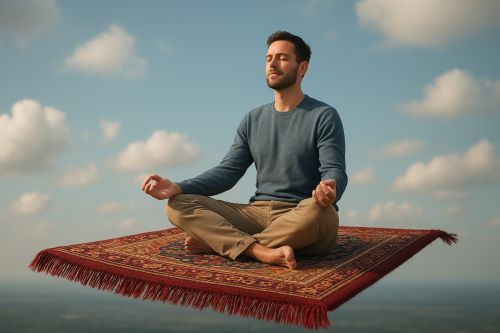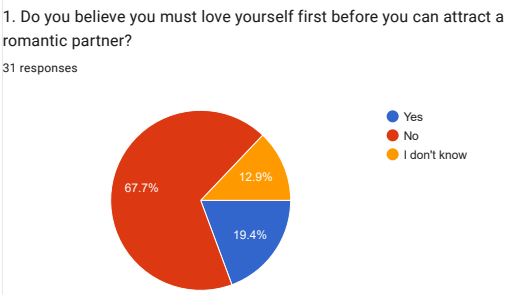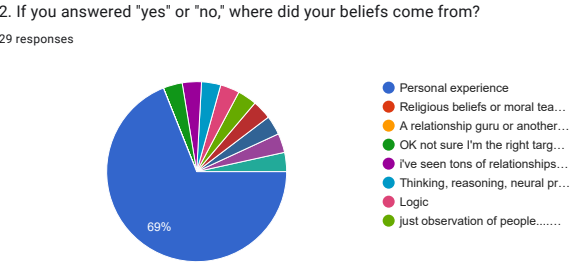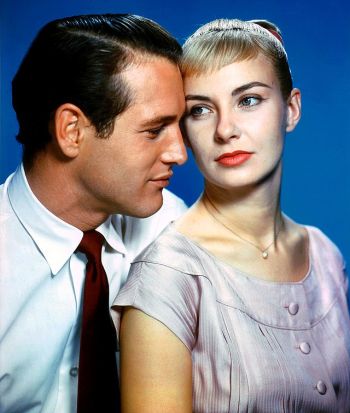- What Are the Arguments for and Against the "Love Yourself First" Philosophy?
- Does Loving Yourself First Make You a Better Partner, Parent, or Friend?
- Can't Loving Someone Else Actually Help You Learn to Love Yourself?
- What About People Who Seem to Love Others Easily But Hate Themselves?
- Why is Love Yourself First Before Loving Others Important for Relationships?
- How Can I Learn to Love Myself?
After a bad relationship ended, a spiritual advisor kept telling me to “love yourself first” to attract the right partner. Once I did, the process sounded mystical — like the man of my dreams would float in on a magic carpet.
I had low self-esteem then and have worked on loving myself, so that advice made sense. But it also seemed a bit bullshit-y to me. I didn’t always believe it when I saw others who put themselves last find partners.
So, is “love yourself before loving others” just a feel-good saying based on pop psychology?

Not exactly.
If you dig a little deeper, the philosophy holds a grain of truth. Based on my experience and research, self-love isn’t necessary to attract a partner. But self-acceptance is more likely to lead to a loving and fulfilling relationship.
Where does the “love yourself before loving others” philosophy come from?
The exact origin isn’t clear. It’s thought to stem from Buddhism and Taoism, which focus on self-awareness and inner peace. Abraham Maslow later theorized in his hierarchy of needs that psychological health is important to us for fulfilling our needs; when we meet them, we can become self-actualized or reach our potential.
In the 1950s, psychologist Carl Rogers argued self-acceptance and an “unconditional positive regard” were crucial for authentic relationships.
By the 1970s and 1980s, self-help books like M. Scott Peck’s The Road Less Traveled and Louise Hay’s You Can Heal Your Life espoused self-love before you can love another, which permeated pop culture.
The belief carries pros and cons. You can feel like they’re “doing relationships wrong” if they haven’t become self-actualized. But if you want to grow, it can help you work toward becoming a better partner.
What Are the Arguments for and Against the “Love Yourself First” Philosophy?
Little research is available. A 2021 study by The Knot, which surveyed over 500 women age 18 to 29 found that:
- 79 percent said you must love yourself before you can love someone else.
- 56 percent said the idea of self-love became more important after the COVID-19 pandemic.
To learn more, I ran some informal polls on Reddit to gauge interest and gain insights.
In the first one, open to anyone, I asked, “Do you believe you must love yourself first before you can love a romantic partner?” Out of 118 people, more than half answered “No, loving yourself can help you learn self-love, too.” It got more than 500 views.
That sparked my curiosity about why the respondents chose their answers. So, I posted another poll: “If you believe you must love yourself first before you attract a romantic partner, why do you think that?” Again, it was open to all.
The forum rules restricted me from encouraging replies to the top choice, “other,” (47 percent of replies). The runner-up was “personal experience” (36 percent). It got over 800 views and comments from both sides.

In a final anonymous survey of 31 Redditors age 30+ from English-speaking countries, 68 percent didn’t believe they had to love themselves first. Nineteen percent said “yes,” and 13 percent were undecided.
When asked where their beliefs came from, 69 percent said personal experience, 13 percent based them on observation, and ten percent on logic. The remaining answers varied.
The answers included:

- “Observation, personal experience, and deliberation”
- “I’ve seen tons of relationships where neither person like themselves — more relationships like that than not.”
Demographically, 52 percent identified as male, 42 percent as female, and 6.5 percent as non-binary. More than two-thirds were age 30 to 39.
Does Loving Yourself First Make You a Better Partner, Parent, or Friend?
Research reveals evidence for both beliefs.
How Self-Esteem Affects Love Relationships: Exploring the Evidence
Studies find that people with higher self-esteem report happier, more trusting partnerships. They also tend to buffer their partner’s insecurities, too. For instance, a 2017 review found high self-esteem not only makes someone happier, it also boosts their partner’s relationship satisfaction.
The research, however, shows that each partner’s self-esteem level doesn’t influence the couple’s relationship satisfaction.
Another 2017 study showed people with low self-esteem expressed less affection and fewer positive reactions when they did. They thought their partner also didn’t benefit, but their partners often felt good when the subjects showed love. This suggests people with low self-esteem can end up in unhappy relationships because they don’t believe someone can love them.
Similarly, men with unstable high self-esteem were found to tend to rate their relationships more highly than others to bolster self-confidence.
A 2020 analysis found relationships and self-esteem influence each other equally, feeding off each other over time. People in healthier relationships tended to develop higher self-esteem, and those with more self-confidence had healthier relationships.
The results held across different ages, genders, ethnicities, and time frames. But self-esteem had a stronger effect on general social relationships than on specific romantic partnerships. The effect was also stronger when people reported on their own relationships rather than when others observed them.
“The problem isn’t loving others before loving yourself, it’s believing you’re unworthy of love until you do.”
Psychology Today
Can’t Loving Someone Else Actually Help You Learn to Love Yourself?
A 2021 study concluded people who were anxious or avoidant in relationships were less satisfied. This was especially true for avoidant people — those who tend to pull away emotionally.
But when both partners had similar insecure attachment styles (anxious, avoidant, etc.), it reduced some of the negative effects. It’s like being “mismatched” created some understanding; this reciprocity implies you don’t need to fully love yourself — healthy partnerships can help you accept yourself over time.
A 2024 study also showed that when one secure partner supported an insecure partner, it reduced the negative effects on the relationship.
What About People Who Seem to Love Others Easily But Hate Themselves?
Looking at long-term relationships, especially famous ones, we can understand how this plays out.
Obviously, we’re limited to each person’s views and eye-witness accounts; we can all project an image of how we want to appear. We don’t always know what really happened behind closed doors.
Take the marriages of Ozzy and Sharon Osbourne or Paul Newman and Joanne Woodward: they’ve both been called “complicated.” Their willingness to share their mistakes appeared authentic, making them seem more real and relatable than couples with “perfect” images.
Both were married for decades until the husband died (40 and 50 years, respectively). In both cases, the wives seemed more secure, and through ups and downs, helped their husbands love themselves more over time.
Ozzy and Sharon: Fear and Loathing in Los Angeles
The late rocker Ozzy Osbourne spoke openly about his alcoholism and darkest phases. He described drinking early on because he never liked himself. In an interview, he shared that when he was alone and faced his reflection, he felt awful and hated himself, often turning to alcohol to escape.

while filming their MTV show “The Osbournes.”
He admitted, “I’m never happy because I never think I’m good enough,” adding that even major achievements didn’t cheer him up because he was always bracing for a disaster.
In another candid moment, he confessed: “I wish I was a hero to me, sometimes. I do a good job of beating myself up.”
His wife, Sharon, likewise, in her autobiography Extreme, wrote that she never ever considered herself beautiful. “When I was skinny, people would wonder if I was Ozzy’s sister. When I was big it was, ‘Are you his mother?’” In a 2005 interview, she shared how her bulimia and weight struggles came from “having low self-esteem.” She said, “Ozzy loved me as I was — but I didn’t.”
The Hard Road to Self-Acceptance
Ozzy later discussed overcoming addiction and personal crises. He noted that accepting yourself, despite the flaws, is crucial for growth and resilience.
Not all his songs dwell on darkness. For instance, though some listeners assumed the hit “Flying High Again” was about drug use, Ozzy said the upbeat track was inspired by his comeback after his firing from Black Sabbath.
Sharon has shown similar resiliance and confidence — signs of self-acceptance:
- “When you get pushed down, you pick yourself up and move on. I’ve never been a victim.” A-Z Quotes
- “I’ve got so much wisdom and have lived through so much life that I feel more powerful than I ever have.” A-Z Quotes
- “Your past doesn’t define you. You have the power to create your own future and write your own narrative.” (Extreme)
Like us, Ozzy and Sharon weren’t perfect. Some see their relationship as codependent and believe Sharon enabled and controlled a weak-minded abuser and philanderer. I see them as human and their love and forgiveness for each other as divine.
They admitted they depended on each other. Sharon said Ozzy was the only man she ever loved, and Ozzy called her his soulmate. When I see them say they love each other in one of their last joint videocasts, whether or not you approve, it looks sincere and heartfelt.
Paul and Joanne: Westport Blues
Paul Newman frankly detailed his insecurities behind his public persona, especially in his youth. He described feeling like a “goddamn freak” and a “happy buffoon” as a teen. He also called himself an “emotional Republican” who had little support growing up, his family having judged him harshly.

Summer” (1958) featuring Paul Newman and Joanne
Woodward.
In his memoir The Extraordinary Life of an Ordinary Man, he recognized how meeting Joanne transformed his self-worth and image. Despite being seen as a heartthrob, he didn’t feel sexy until they met (when he was still married to his first wife): “Joanne gave birth to a sexual creature. We left a trail of lust all over the place.”
He also said he went “from being not much of a sexual threat to something else entirely,” which helped him reinvent himself as a sex symbol.
Joanne Woodward, by contrast, appears less inhibited. Her career peaked earlier, and she took on a more traditional wifely role that contrasted with Newman’s rising stardom. She was known for her artistic goals, having once said, “Acting is like sex. You should do it, not talk about it.” She preferred smaller, meaningful roles over star parts that didn’t suit her.
When she won the Academy Award, she wore a dress she had sewn herself.
She valued being “the first Joanne Woodward” over imitating others.
Despite her success, she expressed some regrets — part of self-acceptance or the lack thereof. As she told The New York Times in 1981: “Initially, I probably had a real movie-star dream. It faded somewhere in my mid-30s…It was painful. Also, I curtailed my career because of my children. Quite a bit. I resented it at the time…”
Why is Love Yourself First Before Loving Others Important for Relationships?
From looking at the evidence and possibly also your own experiences, it starts with how you see yourself. When you’re confident, you’re more likely to attract caring partners than if you dislike yourself. What we reflect, we can attract.
Key questions to ask to explore your relationship goals and understand if the object of your affection is your reflection:
- Why is being in a relationship important to me?
- How does my level of self-acceptance shape the way I choose and treat partners?
Loving yourself can open you to become more comfortable with who you are; you’ll be less likely to act impulsively (as I did) and enter a relationship without thinking.
How Can I Learn to Love Myself?
If you have low self-esteem and feel you must love yourself to attract the right partner, finding what brings you joy can help you discover who you are (aka your authentic self). It doesn’t necessarily involve fixing your flaws. It’s more about accepting yourself as you are now — as awkward and as painful as that might seem.
How to Develop Self-Love
In The Knot’s survey, 58 percent of the young women said they listen to music, while 47 percent said they prioritize getting enough sleep. Exercising and goal-setting ranked closely behind. Others mentioned reciting positive self-affirmations, ending toxic relationships, saying “no,” and setting a healthy work-life balance.

Self-care is crucial; I often try to get enough rest. For me, another vital part of self-love is having compassion for and being kinder to myself. I try to catch and stop self-criticism.
Singing while I sweep floors, or watching comedies boosts my mood and energy levels. I also like to name five things I’m thankful for daily. Gratitude also raises my vibration. When you’re not kind to yourself, like through working all the time — which I once did — the routine can make you feel unhappy.
Walk therapy — going on strolls in nature — can keep you grounded, and meditating by yourself or talking through issues with others can also be freeing.
Jonathon Aslay’s book What the Heck is Self-Love Anyway? offers more advice on the journey to self-acceptance.
Though self-love might not always deliver true love, the greater self-confidence that results helps you avoid settling for relationships that don’t nurture you. You’ll be more likely to walk away from game players and time-wasters. You’ll feel good enough about yourself to stand up for yourself and won’t settle for scraps.
In future blogs, we’ll explore who best to look for and how that dovetails with who you are to help you find the right partner.
What’s your experience — did you find self-acceptance before or alongside true love? Let me know below.
Are you dating in disguise, or are you comfortable showing up as you are? Take the quiz to find out.
- How Dating App Fatigue Kills Authenticity in Relationships — and How Clear-Coding Fixes It - January 23, 2026
- Why Do People Self-Sabotage in Relationships? - December 19, 2025
- “Just Be Yourself” Dating: 3 Barriers to Overcome - November 19, 2025